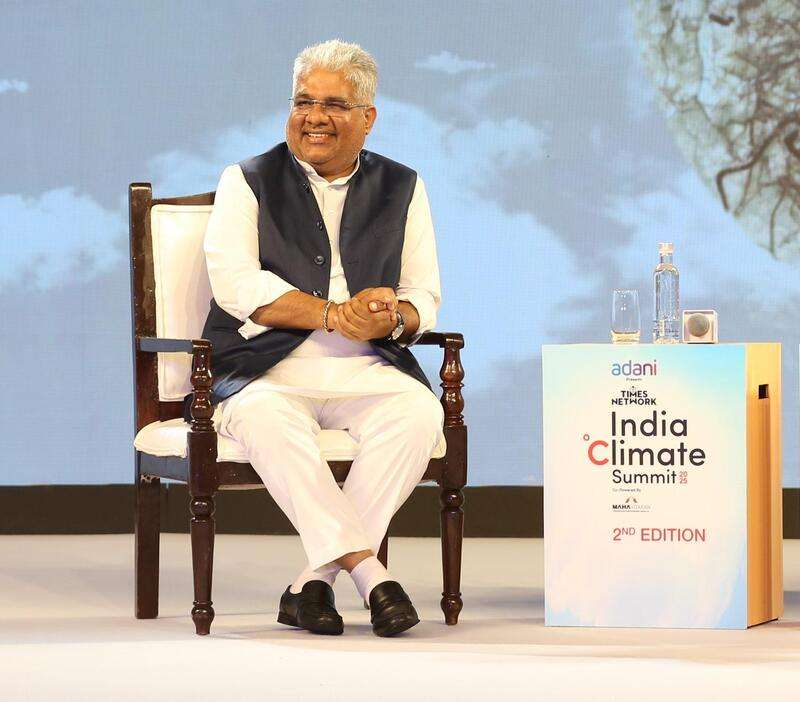
Distinguished leaders and climate advocates including Mrutyunjay Mohapatra, Lokesh Chandra, and Bhumi Pednekar emphasize urgent steps for India’s climate resilience at the second edition of the summit in New Delhi.
New Delhi, June 27, 2025: The second edition of the Adani presents Times Network India Climate Summit, co-powered by Mahavitaran, convened India’s foremost policymakers, scientists, industry leaders, and climate advocates in New Delhi to chart a path toward net-zero targets, sustainable development, and climate resilience.

Delivering the special address, Shri Bhupender Yadav, Hon’ble Union Minister of Environment, Forest & Climate Change, underscored India’s proactive, equity-driven climate strategy, highlighting achievements such as exceeding Paris Agreement goals on emissions intensity and renewable energy well ahead of 2030, and near-completion of national targets on green cover. He emphasized initiatives like the International Solar Alliance, the Coalition for Disaster Resilient Infrastructure, LeadIT, and the Greenhouse Gas Inventory, noting India’s leadership in global climate governance.
On India’s National Cooling Action Plan, he added, “Even without adequate international climate finance, we are prioritizing ecology alongside economic growth, empowering citizen-led climate action through Mission LiFE and initiatives like Ek Ped Maa Ke Naam.”
Lokesh Chandra, Chairman and Managing Director, Maharashtra State Electricity Distribution Company Limited, detailed the state’s efforts to decarbonize agricultural power demand through the Mukhyamantri Saur Krishi Vahini Yojana. “Our target is 16,000 MW of decentralized solar by 2026, with 1,600 MW already commissioned—this is transforming rural livelihoods, reducing subsidies, and improving farm productivity,” he stated, highlighting the initiative’s national recognition and replicability.
Dr. Mrutyunjay Mohapatra, Director General, India Meteorological Department, sounded an alarm on intensifying heatwaves caused by climate change, attributing their increasing frequency and severity to human-induced factors like greenhouse gas emissions, deforestation, and urbanization. “Beyond improving forecasting, we must reduce emissions, protect forests, and build resilient infrastructure,” he stressed.
Bringing a fresh perspective, Bhumi Pednekar, Actor, Climate Warrior, and UNDP Advocate, spoke on the climate impact of fast fashion: “Fashion isn’t the enemy—it’s a powerful tool. By choosing thoughtful consumption and championing Indian craftsmanship, we can redefine sustainability without compromising style. Sustainability is not restrictive; it’s a more intentional, meaningful way to live.”
The summit concluded with enthusiastic participation and a collective call for cross-sector collaborations, reaffirming India’s commitment to a sustainable, climate-resilient future.




























